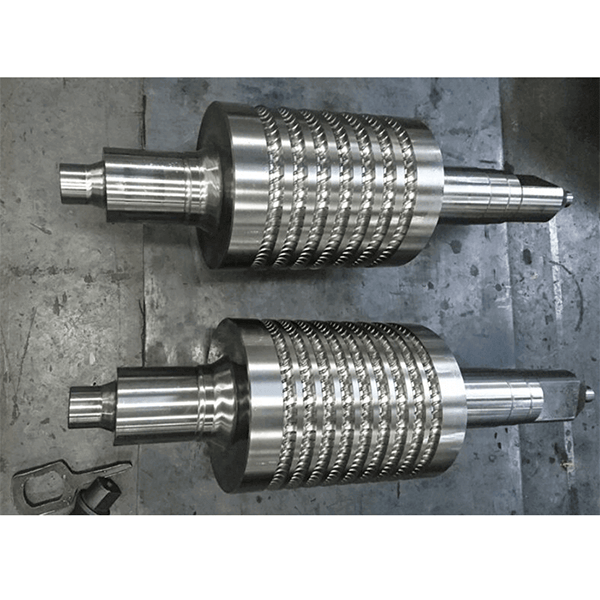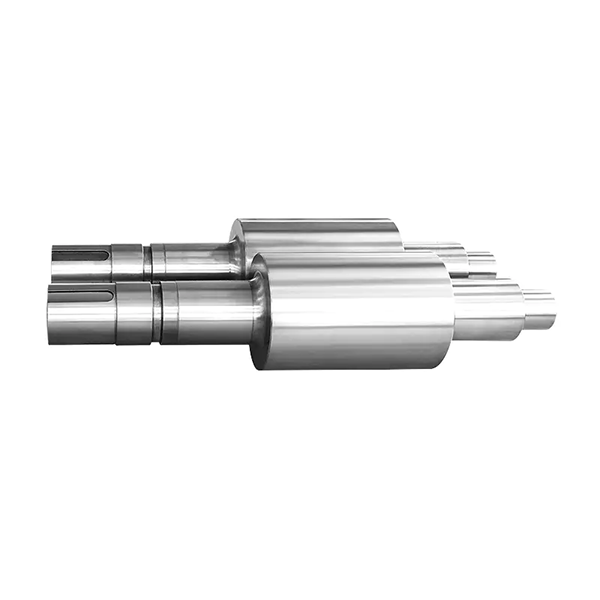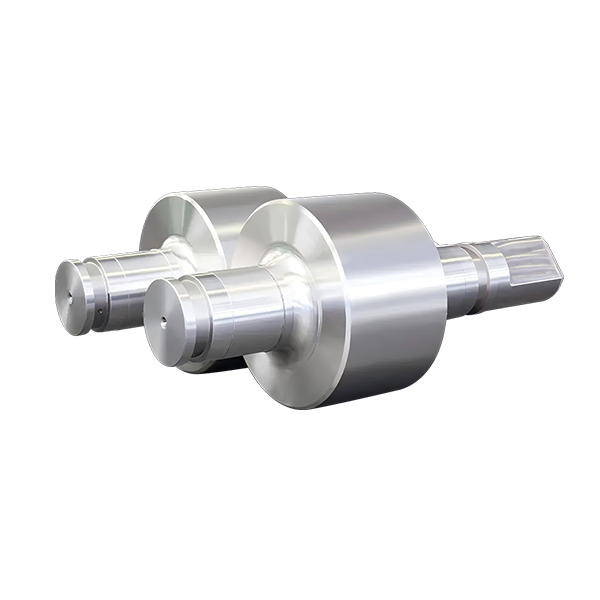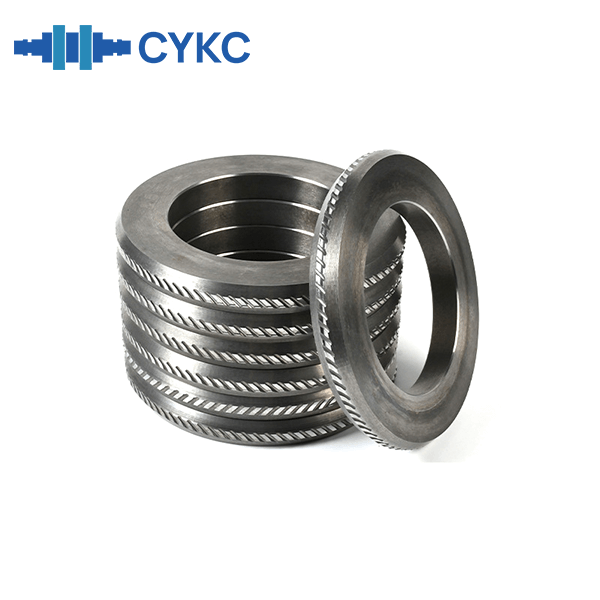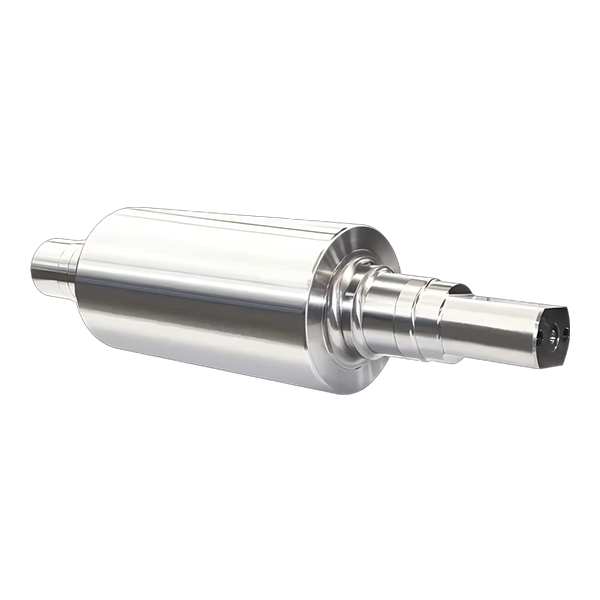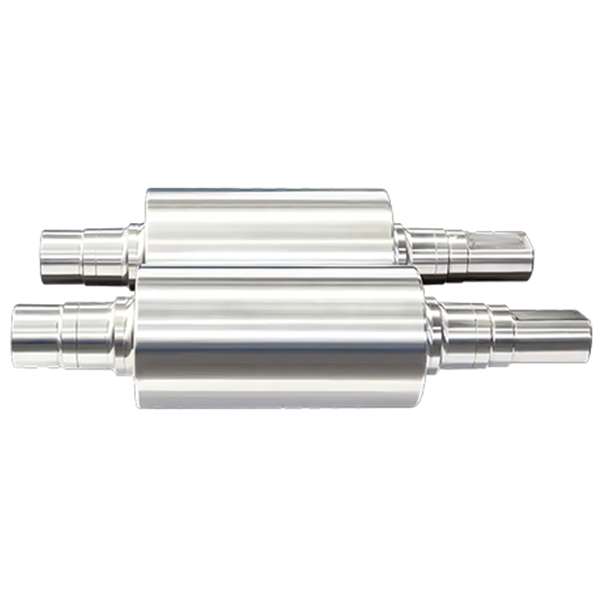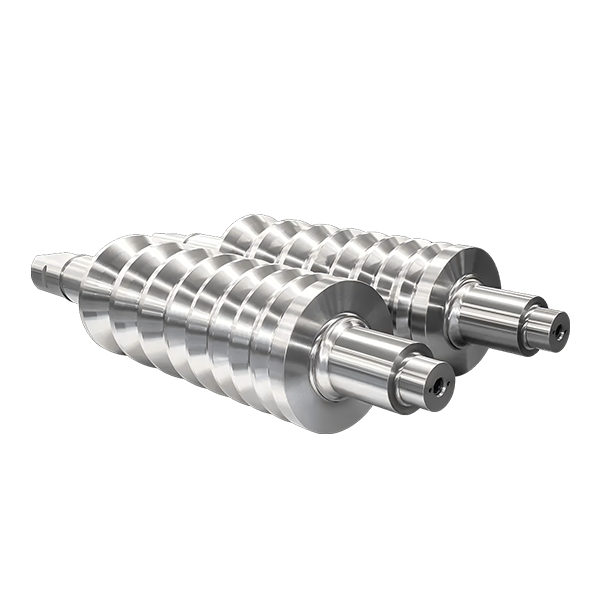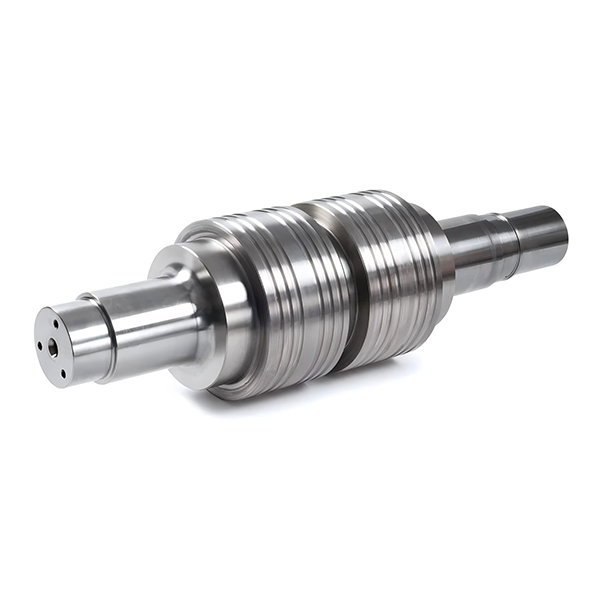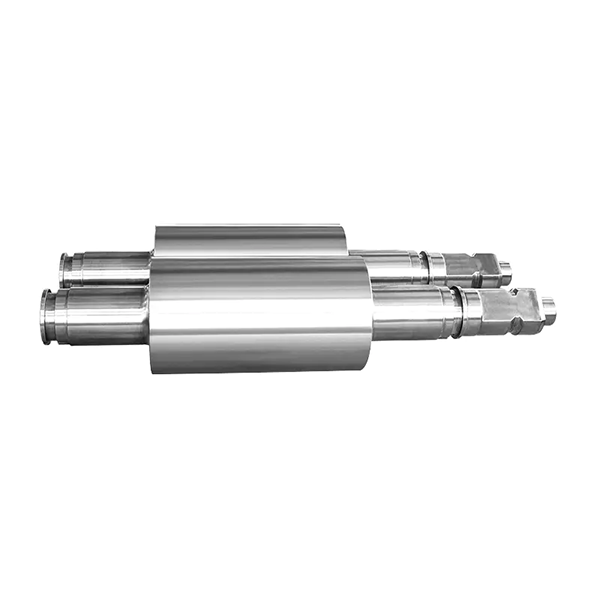In the steel manufacturing industry, the material selection for rolling mill rolls plays a critical role in the performance and longevity of the equipment. Different types of rolls are required for various rolling processes, and the material selection can significantly impact factors such as wear resistance, toughness, and the ability to withstand high temperatures and pressure. In this article, we will explore the composition, advantages, and applications of several key steel mill rolls materials, including Bainite Ductile Cast Iron Rolls, Adamite Rolls, Pearlitic Ductile Cast Iron Rolls, Indefinite Chilled Cast Iron Rolls (ICDP Rolls), Tungsten Carbide Rings, Tungsten Carbide Rolls, and High-Speed Steel Rolls.
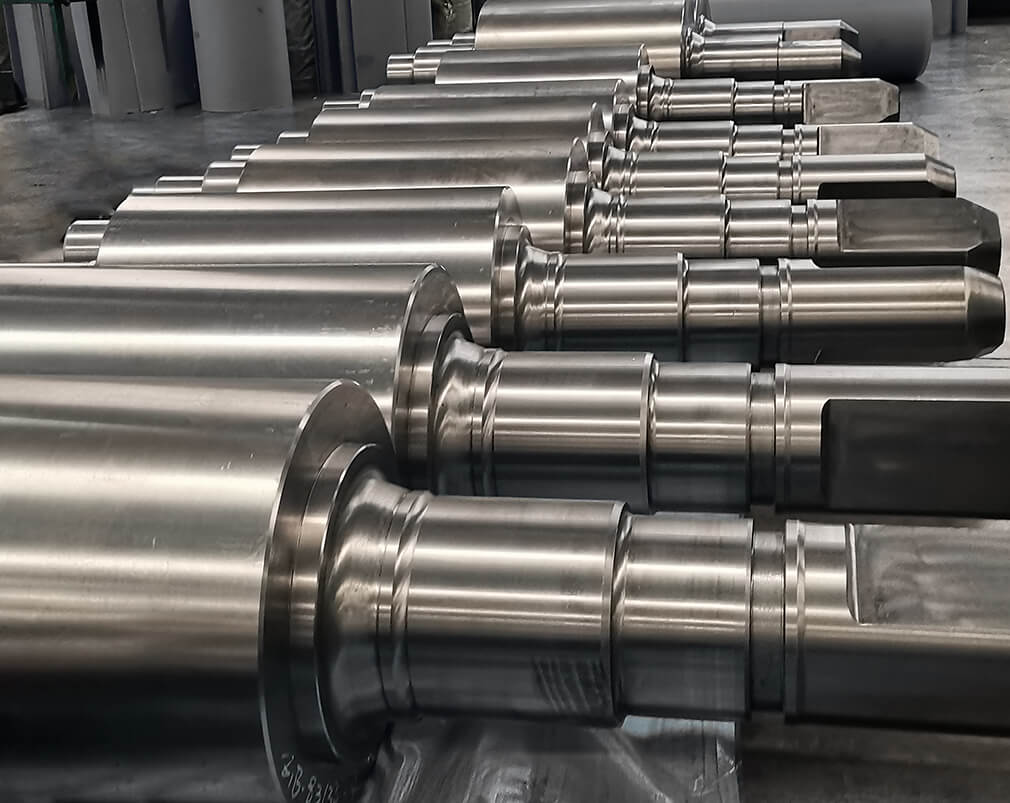
1. Bainite Ductile Cast Iron Rolls
Bainite Ductile Cast Iron Rolls are known for their excellent wear resistance and toughness. This material is composed of a mix of ductile iron and Bainitic microstructure, which provides a high level of strength and hardness. The unique structure allows these rolls to perform well under high-stress conditions, where other materials might wear out quickly.
Advantages:
Excellent wear resistance, especially under high-impact conditions.
High strength and toughness.
Suitable for severe working conditions, ensuring longer service life.
Applications:
Bainite Ductile Cast Iron Rolls are typically used in heavy-duty steel mill rolls where durability and high resistance to wear are crucial. They are commonly found in industries like steel, aluminum, and copper rolling.
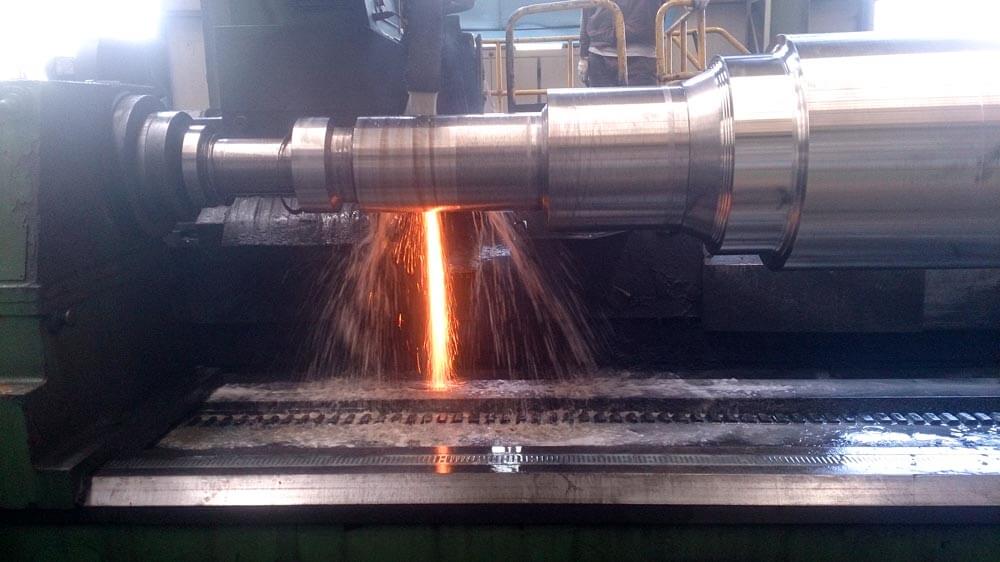
2. Adamite Rolls
Adamite Rolls are composed of a special high-alloy steel material that provides superior mechanical properties. These rolls offer a unique combination of high strength and resistance to cracking under pressure, which makes them ideal for steel mill rolls applications that require both toughness and hardness.
Advantages:
High strength, with resistance to cracking and deformation.
Durability in medium to heavy-duty applications.
Superior performance in rolling processes that require resistance to thermal fatigue.
Applications:
Adamite Rolls are typically used in rolling mill rolls for medium to heavy-duty materials, particularly in the production of long products such as bars and sections.
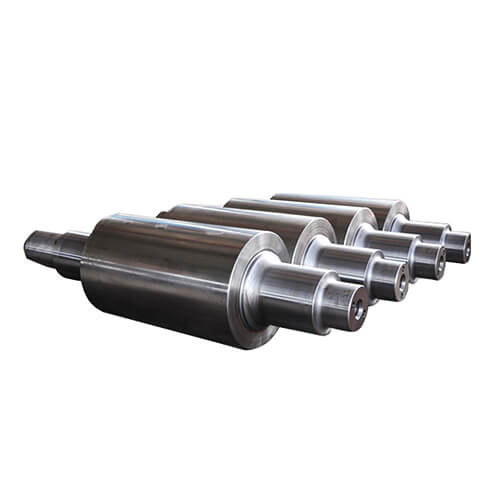
3. Pearlitic Ductile Cast Iron Rolls
Pearlitic Ductile Cast Iron Rolls are composed of ductile iron with a pearlitic microstructure. This material is well-known for its balance between strength, hardness, and wear resistance, making it versatile for a variety of applications.
Advantages:
Good balance between strength and wear resistance.
Cost-effective compared to other materials with higher wear resistance.
Provides a stable performance over time.
Applications:
Pearlitic Ductile Cast Iron Rolls are used in rolling mill rolls with moderate demands, particularly in processes such as hot rolling and producing sheet metal products.
4. Indefinite Chilled Cast Iron Rolls (ICDP Rolls)
Indefinite Chilled Cast Iron Rolls (ICDP Rolls) are produced by pouring molten iron into molds to produce a thin hardened surface layer. The result is a roll that has exceptional hardness and wear resistance, particularly in the outer layers.
Advantages:
Excellent wear resistance due to the hard chilled surface.
Longer service life compared to other steel mill rolls.
Effective in high-pressure applications.
Applications:
ICDP Rolls are commonly used in industries where roll life and wear resistance are paramount, such as in cold rolling and high-speed rolling operations.
5. Tungsten Carbide Rings
Tungsten carbide is one of the hardest materials known, and it is often used in the form of rings or inserts in rolling mill rolls. The material is composed of tungsten and carbon, and it provides extraordinary hardness and resistance to wear, making it ideal for harsh environments.
Advantages:
Exceptional hardness and wear resistance.
Resistant to high temperatures and corrosion.
Suitable for applications that involve abrasive materials.
Applications:
Tungsten Carbide Rings are commonly used in high-performance steel mill rolls where rolls are subjected to extreme conditions, such as in the production of high-strength steel or other tough materials.
6. Tungsten Carbide Rolls
Tungsten Carbide Rolls are made entirely of tungsten carbide, offering superior performance in high-temperature and high-wear environments. This material provides the highest resistance to wear and extreme conditions, making it ideal for industries requiring precise, long-lasting rolls.
Advantages:
Extremely hard and wear-resistant.
Performs well under high temperatures.
Excellent for high-precision rolling applications.
Applications:
These rolls are often used in applications involving abrasive materials or high-speed processes, such as in the production of high-strength alloys and thin-walled components.
7. High-Speed Steel Rolls
High-Speed Steel (HSS) Rolls are composed of a combination of carbon, tungsten, and other alloying elements that provide high hardness, heat resistance, and the ability to maintain sharp edges under high-speed conditions. These rolls are particularly valuable in operations that involve cold rolling.
Advantages:
High hardness and wear resistance at elevated temperatures.
Ability to maintain sharp edges even at high speeds.
Suitable for precise and high-speed rolling operations.
Applications:
HSS Rolls are primarily used in the production of thin sheets and high-precision steel products, especially in applications that require both high speed and precision.
Conclusion
The material composition of rolling mill rolls is crucial to ensuring optimal performance, durability, and efficiency in rolling operations. From Bainite Ductile Cast Iron Rolls to High-Speed Steel Rolls, each material offers unique properties that cater to specific needs in the rolling industry. By understanding the characteristics and applications of these materials, steel mill rolls manufacturers can make informed decisions about which rolls will best meet their production demands.
Call to Action
Choosing the right material for rolling mill rolls can significantly enhance the efficiency and longevity of your production line. For expert advice and high-quality steel mill rolls, consult with a trusted roll manufacturer to ensure the best material choice for your specific needs.


